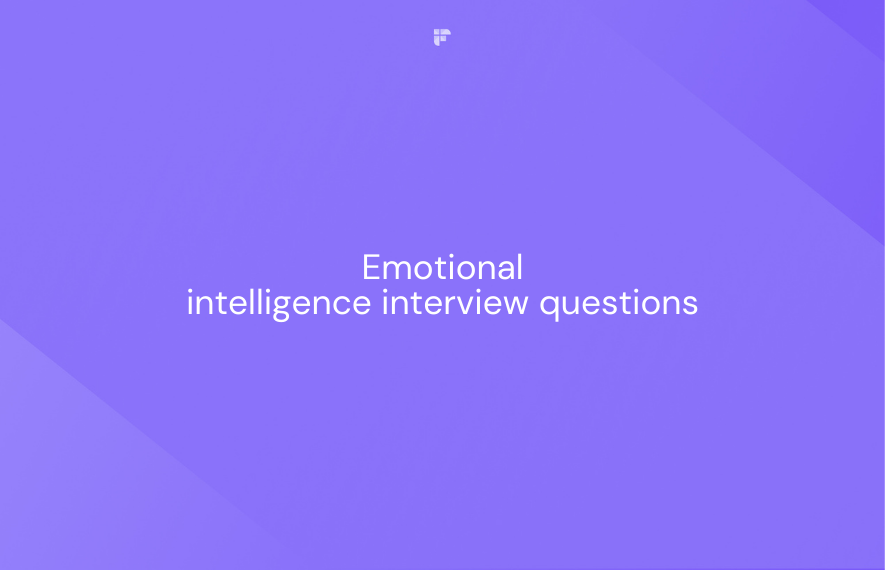Emotional intelligence is a crucial factor to consider when hiring candidates. A candidate with high emotional intelligence is more likely to work well in a team, communicate effectively, and handle conflicts professionally.
According to a survey, 71% of employers prioritize emotional intelligence over IQ in employees. However, assessing emotional intelligence during the hiring process can be challenging.
To help you evaluate candidates, we have compiled a list of 25 strategic emotional intelligence interview questions.
These questions are designed to help you understand how candidates perceive their emotions and those of others. With this information, you can decide whether or not a candidate is right for the job.
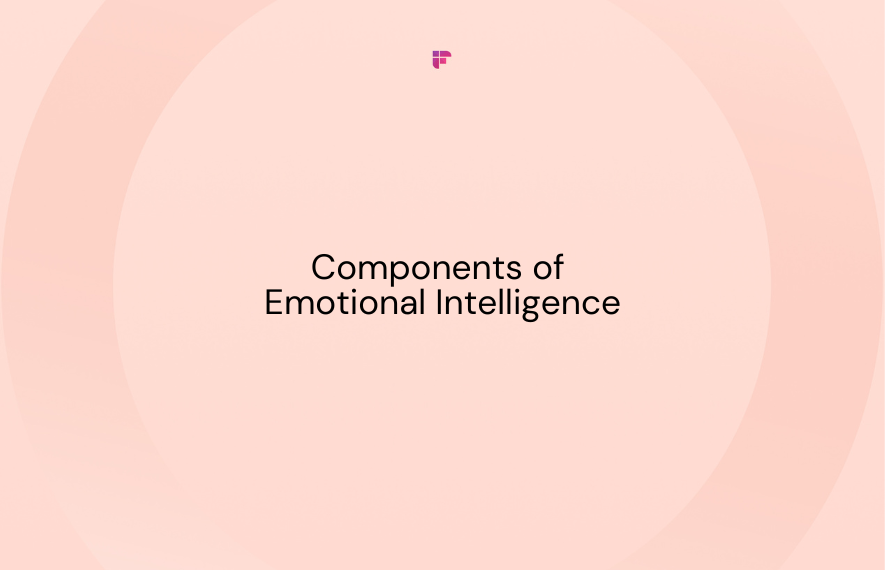
What is emotional intelligence?

Emotional Intelligence is the “ability to monitor one’s own and other people’s emotions, to discriminate between different emotions and label them appropriately, and to use emotional information to guide thinking and behavior” (Salovey and Mayer, 1990).
Peter Salavoy and John Mayer coined the term "emotional intelligence" in their 1990 article titled "Emotional Intelligence," published in the journal Imagination, Cognition, and Personality. Subsequently, Dan Goleman further propagated this concept when he included it in his 1995 book, "Emotional Intelligence."
Here's a more simple explanation: Emotional intelligence, also known as EQ, is all about understanding and managing emotions—both yours and other people's. It's like having a set of skills that helps you navigate social situations, handle challenges, and connect with others.
Think of it as being aware of how you feel, controlling those feelings, understanding how others might be feeling, and using that understanding to communicate and handle relationships better. Emotional intelligence is about being smart with feelings!

What are emotional intelligence interview questions?

Emotional intelligence interview questions are designed to help you assess a candidate’s ability to recognize, understand, and manage emotions in oneself and others. They often revolve around scenarios, asking candidates to describe past experiences, reactions to challenges, or how they interact with others.
These questions delve into self-awareness, empathy, conflict resolution, and adaptability, providing valuable insights into a candidate's soft skills and suitability for a role within a team or organizational structure.

25 Sharp emotional intelligence interview questions

Here's a breakdown of 25 sharp emotional intelligence interview questions divided into two categories: Behavioural Interview Questions for Emotional Intelligence and Situational/Scenario-Based Questions.
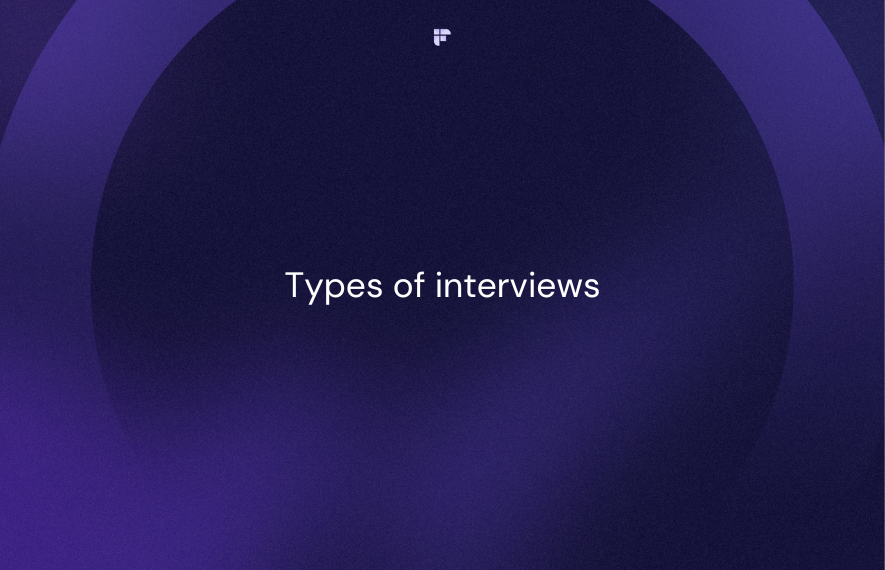
Behavioral interview questions for emotional intelligence
Here are some behavioral interview questions for emotional intelligence:
Self-awareness

These emotional intelligence interview questions will help you assess the individual's self-awareness.
1. Can you describe a time when you received critical feedback? How did you handle it emotionally?
Receiving Critical Feedback: This query assesses how candidates handle criticism. It highlights their self-awareness and openness to improvement, which are vital for personal and professional growth.
2. How do you manage stress in challenging situations at work?
Stress Management: Assessing how candidates manage stress showcases their emotional control. This ability is crucial in challenging work situations, ensuring both productivity and well-being.
3. Share an example of when you had to manage conflicting emotions while making a tough decision.
Managing Conflicting Emotions in Decision-Making: This question uncovers a candidate's ability to navigate complex emotions. It showcases their decision-making process and emotional stability, especially under pressure.
4. Describe a moment when your emotions positively influenced your decision-making at work.
Positive Influence of Emotions on Decision-Making: Exploring instances where emotions positively impacted decisions reveals candidates' emotional intuition. It demonstrates the impact of this intuition on their effectiveness at work.
Self-regulation
These emotional intelligence interview questions will help you assess the individual's self-regulation:
5. Describe a scenario where you had to control your emotions to maintain professionalism.
Maintaining Professionalism Through Emotional Control: This query examines how candidates control emotions professionally. It's essential for maintaining composure and enabling effective communication in the workplace.
6. How do you handle situations when things don't go as planned?
Adapting to Unplanned Situations: Assessing how candidates handle unforeseen circumstances reflects their adaptability. These problem-solving skills are crucial traits in dynamic work environments.
7. Can you share an experience where you had to adapt to a major change? How did you cope?
Coping with Major Changes: Evaluating coping mechanisms during significant changes showcases candidates' resilience. It highlights their flexibility, key qualities essential for adapting to evolving work landscapes.
8. How do you handle distractions and stay focused on your work goals?
Handling Distractions and Maintaining Focus: This question explores candidates' ability to remain focused amidst distractions. It's crucial for achieving work goals and managing overall productivity.
Motivation

These emotional intelligence interview questions will help you assess the individual's motivation:
9. What inspires or motivates you in your work?
Inspiration and Motivation: Understanding what inspires or motivates candidates at work unveils their personal drive and passion. It showcases their intrinsic motivations and alignment with the role they're pursuing.
10. Share an accomplishment you're proud of. How did your motivation contribute to this success?
Accomplishment and Motivation: Discussing an accomplishment allows candidates to link their motivation to success. It reveals their drive, perseverance, and dedication to achieving goals.
11. How do you stay focused and engaged during challenging tasks?
Focus and Engagement: Exploring how candidates stay focused during challenging tasks reveals their ability to maintain concentration. This skill is essential for sustaining enthusiasm and overcoming obstacles.
12. Explain how you maintain enthusiasm for routine or repetitive tasks.
Enthusiasm for Routine Tasks: Assessing how candidates maintain enthusiasm for routine or repetitive tasks reveals their positive attitude. It also showcases their commitment, both crucial for consistent performance.

Empathy

These emotional intelligence interview questions will help you assess the individual's empathy:
13. Describe a situation where you successfully resolved a conflict by understanding the other person's perspective.
Conflict Resolution through Understanding: Describing a situation where candidates resolve a conflict by understanding another's perspective showcases their empathy. It also highlights their adeptness in resolving disputes harmoniously.
14. How do you approach building relationships and rapport with team members?
Building Relationships: Exploring candidates' approaches to building relationships and rapport highlights their interpersonal skills. These skills are essential for fostering teamwork and collaboration in a professional setting.
15. Can you share an example of when you helped a colleague facing difficulty?
Supporting Colleagues: Sharing an instance where candidates aided a colleague in difficulty reveals their empathy. It also showcases their willingness to provide support, which is crucial for fostering a cohesive work environment.
16. How do you ensure that everyone's perspectives and opinions are considered during team discussions or decision-making processes?
Inclusive Decision-Making: Understanding how candidates ensure diverse perspectives are considered in team discussions or decisions reveals their inclusivity. It demonstrates their ability to create an open and collaborative environment within the team.
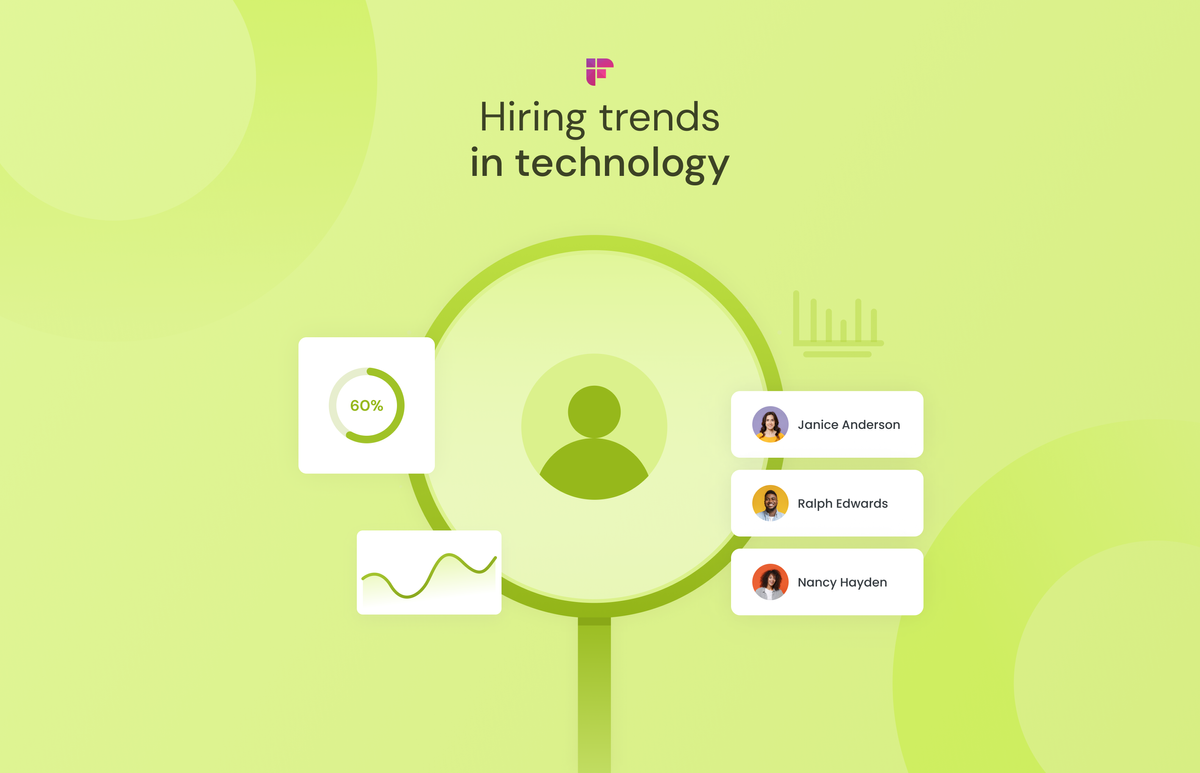
Situational/scenario-based questions
Here are some situational/ scenario-based emotional intelligence interview questions:
Problem-solving

These emotional intelligence interview questions will help you assess the individual's problem-solving skills:
17. You're leading a project and encounter resistance from team members. How do you navigate this situation?
Navigating Resistance in a Project: This question assesses a candidate's leadership skills in addressing team resistance. It highlights their ability to maintain project momentum and collaboration amidst challenges.
18. If a team member consistently misses deadlines due to personal issues, how would you handle it?
Managing Missed Deadlines: Evaluating how candidates handle team members' missing deadlines due to personal issues reveals their empathy. It also sheds light on their problem-solving and support mechanisms to maintain productivity within the team.
19. Describe how you would mediate a disagreement between two team members.
Mediating Team Disagreements: Understanding how candidates approach mediating disagreements reveals their diplomacy. It also demonstrates their ability to resolve conflicts constructively, contributing to team harmony and sustained productivity.
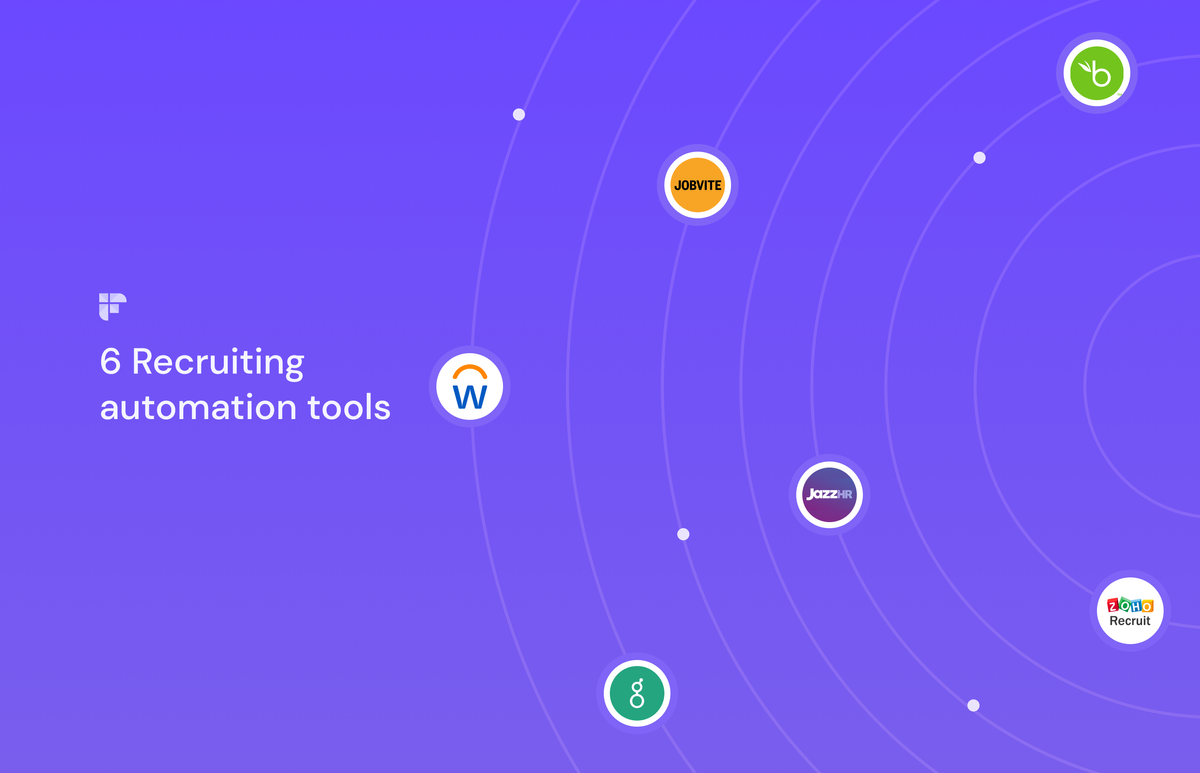
Adaptability

These emotional intelligence interview questions will help you assess the individual's adaptability:
20. How do you handle sudden changes in project requirements or goals?
Handling Sudden Changes: Assessing how candidates adapt to unexpected changes in project requirements or goals reveals their flexibility. It showcases their agility in adjusting strategies to meet evolving needs and demands effectively.
21. Describe a time when you had to adjust your approach while working on a project due to unforeseen circumstances.
Adjusting Project Approach: Exploring instances where candidates adapted their approach due to unforeseen circumstances highlights their problem-solving abilities. It also showcases their resilience in effectively managing unexpected challenges.
22. How do you react when faced with ambiguity or uncertainty in a project?
Handling Ambiguity or Uncertainty: Understanding how candidates react to ambiguous or uncertain project situations reflects their comfort level. It showcases their capability to navigate ambiguity effectively within a professional setting.

Communication

These emotional intelligence interview questions will help you assess the individual's communication skills:
23. Describe a situation where miscommunication led to an issue. How did you address and resolve it?
Addressing Miscommunication Issues: Discussing situations where miscommunication led to problems enables candidates to showcase their communication skills. It highlights their ability to address and resolve issues through clarity and understanding within a professional context.
24. How do you tailor your communication style when working with different personalities or teams?
Tailoring Communication Styles: Assessing how candidates adapt their communication style to different personalities or teams reveals their versatility. It highlights their effectiveness in fostering communication and collaboration across various contexts and individuals.
25. Can you share an example of when you had to deliver difficult feedback to a colleague or superior?
Delivering Difficult Feedback: Exploring instances where candidates delivered challenging feedback demonstrates their empathy and tact. It showcases their professionalism in handling sensitive conversations, promoting growth, and fostering improvement within the team or organization.

Why is it important to assess a candidate's emotional intelligence?

Experts suggest that emotional intelligence is more important than IQ for success. For instance, imagine you are a manager with two candidates with similar IQ and technical skills. One has a high level of emotional intelligence, while the other does not.
A candidate with high emotional intelligence is more likely to work well in a team, communicate effectively, and handle conflicts professionally. Emotional intelligence is crucial in the hiring process, as it can help you identify individuals who are better equipped to handle the demands of the job.
Here are some key points on why assessing a candidate's emotional intelligence in interviews is crucial:
- Team Dynamics: Emotional intelligence indicates how well a candidate collaborates and works within a team setting, which is vital for productivity and harmony.
- Effective Communication: It predicts the candidate's ability to communicate ideas and concerns, ensuring clarity and understanding among colleagues and clients.
- Conflict Resolution: High emotional intelligence in interviews suggests adeptness in handling conflicts diplomatically, reducing disruptions, and fostering a positive work environment.
- Adaptability and Resilience: Candidates with strong emotional intelligence tend to adapt well to change and bounce back from setbacks, essential traits in dynamic work environments.
- Leadership Potential: It hints at a candidate's potential for leadership, showcasing empathy and understanding crucial for guiding and motivating teams.
Enhance the interview process with Fireflies.ai

Fireflies.ai is an AI meeting assistant designed to enhance interviews by seamlessly integrating and capturing crucial insights, including emotions and candidate responses, in real-time.
It goes beyond traditional note-taking, meticulously documenting words and emotional tones for a comprehensive assessment of emotional intelligence. This tool not only records interviews but also keeps the information safe, helping you compare and review candidates later.
Ideal for evaluating emotional intelligence, Fireflies instantly captures key moments and essential insights. Its use in interviews simplifies note-taking, particularly when probing emotional intelligence, ensuring no crucial details are missed, and all information is neatly organized for subsequent evaluation.





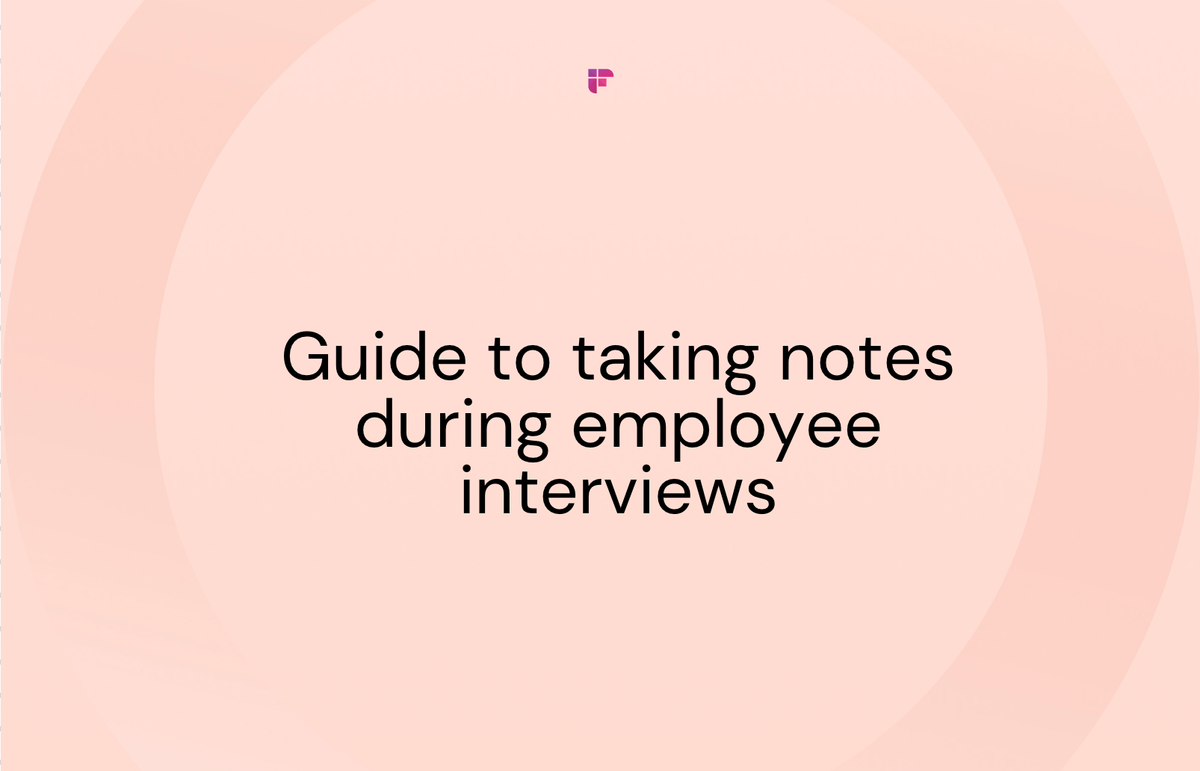
Here's how Fireflies can automate and enhance the hiring process:
- ATS Integration via Zapier: Fireflies can log calls, notes, transcripts, and meetings into your ATS system, which lets you focus on the conversation instead of scrambling to take notes.
- Accelerated Recruiter Training: Fireflies can also help train new recruiters by letting them learn from the best candidate interviews your team has already done. This can help recruiters screen better, ask the right questions, and recruit the best candidates.
- Seamless Hand-offs: Additionally, Fireflies can make hand-offs easy by allowing recruiters to provide more context to hiring managers by sharing Fireflies recaps. Instead of asking the same questions over and over again, hiring managers can be better informed going into the interview.
- Insightful Candidate Moments: Fireflies can also help you learn what your candidates care about by turning important moments from candidate interviews into shareable soundbites for everyone on your team.
- Integrations: Fireflies seamlessly integrates with various collaboration platforms, automatically syncing meeting notes, transcripts, and recordings to your preferred work environments.
Optimize interviews—integrate Fireflies.ai now!
By automating note-taking, streamlining candidate screening, and emotional intelligence assessment, Fireflies optimizes the interview process, empowering you to focus on candidate interactions and make informed decisions effortlessly.
Try Fireflies for free!
